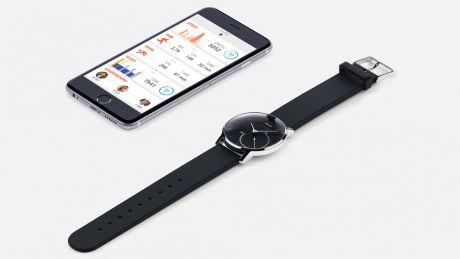Why Do I Need An Activity Tracker?
No, it won’t do the exercise for you, but here’s why it’s a worthwhile investment

There is no escaping fitness bands nowadays, from TV ads to appearing on your friend’s wrist, they’ve fast becoming a mainstay in the UK. There’s such a range of bands and purposes that you’ll probably be able to find one for any niche (want a tracker to stop you from slouching? Yep, that exists. Want to see how hard you can kick a ball? Yes, sir.), but at the core of almost every device out there is the ability to track steps, calories and sleep.
They’re not the most sexy of subjects, but they’re three of the most crucial to our health. Simply walking regularly is enough to reduce the risk of chronic diseases and a lack of sleep can be linked to obesity. Calories? Well, you’re probably already convinced there’s a link between the calories you consume and your health.
So why can’t you just try and walk more, get to bed early and keep a food diary? The simple answer is, you can, but there’s a phrase in the world of management that you may have come across that’s telling: “You can’t manage what you can’t measure.” And in one area, activity trackers can measure something you can’t, the quality of your sleep.
Activity bands track and decipher your movements while you kip to work out the time you slept for as well as any restless periods. While you could track walking with a cheap pedometer and calories consumed with a pencil and notebook, good luck keeping track of the quality of your sleep while semi-conscious – and the quality of your sleep matters. Just think back to the last time you went to bed after a boozy night, got eight hours of shuteye and still woke up feeling like you needed more.
Now you’ve got this new information, you can start to experiment and see what has an effect on the number of restless periods of sleep each night. Here are a few simple suggestions for starters: Try cutting out booze or stop using your smartphone an hour before bed and see what happens to your stats.
Sure, you could just try these things, but if you want to adopt a new habit, there’s nothing quite like seeing the results writ large to convince you it’s worth sticking with when your willpower begins to wane – which it will, because you’re human and changing behaviours is hard.
The same goes for counting calories to watch what you eat and pounding the pavement – seeing improvements over time can help convince you to stick to a healthier regime. There are the low-tech solutions we mentioned above, sure, but what you get with an activity tracker is convenience. We all have the best intentions when it comes to our health, but when life gets in the way it’s easy to forget to note down steps for the day, let alone enter them into a spreadsheet and make a graph. Any activity tracker worth it’s salt will do that for you as a matter of course.
What’s more, the device’s app will take those addictive properties of smartphones, with their constant notifications and micro rewards, and employ them to the benefit of a healthier you.
Constantly checking Twitter? Get an activity tracker and you may find yourself turning to your health stats at every opportunity instead. It’s a surprisingly effective way to let your health muscle its way back into your life and put itself at the front of your mind.
Add to this the social component offered by many activity trackers, which allow you to challenge friends and share achievements, and there’s every chance it’ll help give you the extra little push to create and stick to healthier habits.
And if none of that convinced you, how about lower health and life insurance premiums? Once companies can get over our squeamishness about sharing data (probably by waving significant discounts in front of our noses), there’s every likelihood a log of all that activity you end up doing can convince insurance companies that you’ll have a low risk of health problems.
If knowledge is power and data is currency, the insight that you’ll receive from wearing a fitness tracker every day can make you stronger and richer, both figuratively and literally.
Sign up for workout ideas, training advice, reviews of the latest gear and more.

Jonathan Shannon was the editor of the Coach website from 2016 to 2024, developing a wide-ranging experience of health and fitness. Jonathan took up running while editing Coach and used the training plans on the site to run a sub-40min 10K, 1hr 28min half marathon and 3hr 6min marathon. He’s an advocate of cycling to work and is Coach’s e-bike reviewer, and not just because he lives up a bit of a hill. He also reviews fitness trackers and other workout gear.
